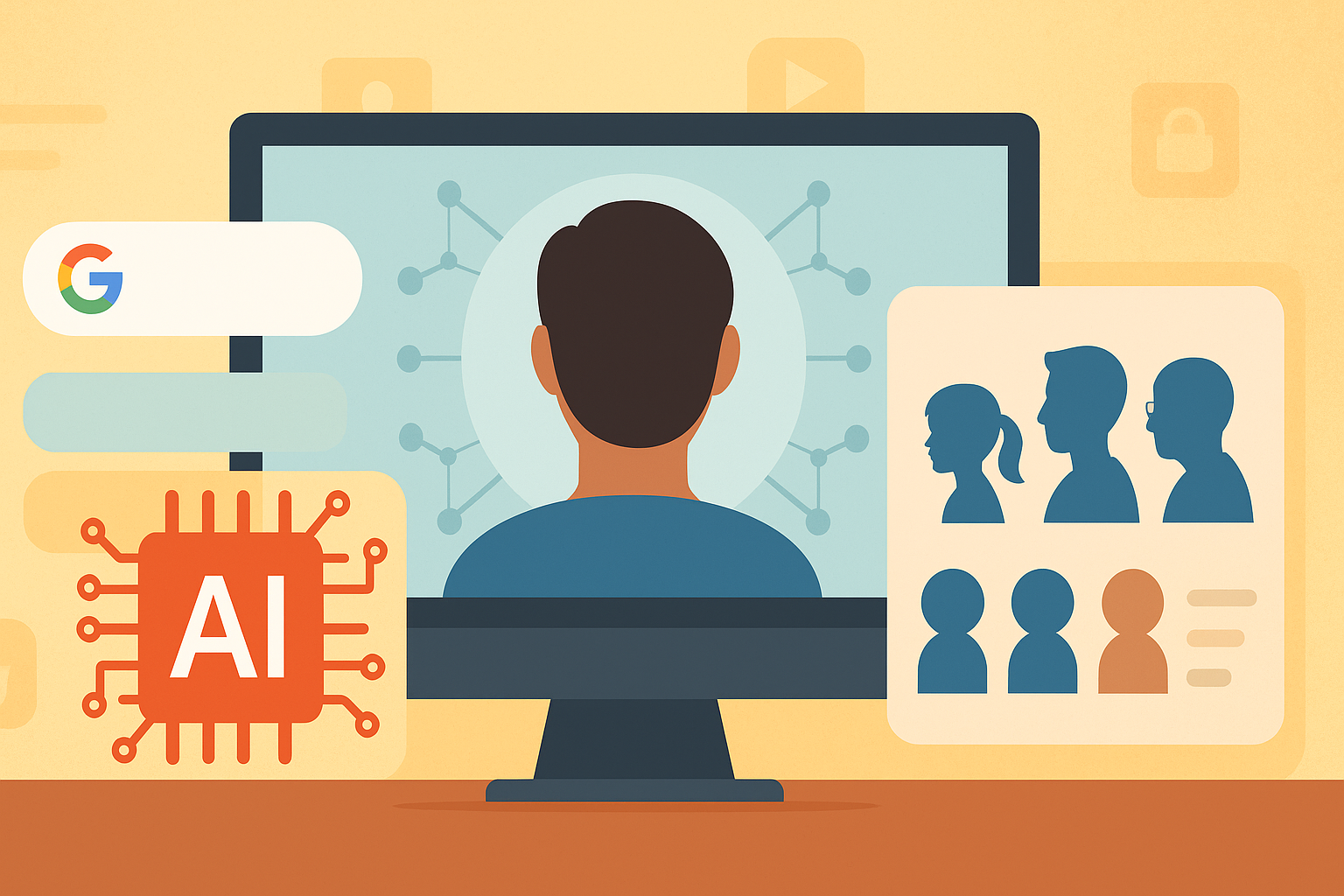Google AI age detection is about to change how tech companies handle age verification online. While some see it as a protective measure to shield minors from explicit content, others fear it may usher in a new age of digital profiling and surveillance. In light of recent regulations like the UK’s Online Safety Act, Google is preparing to use artificial intelligence to estimate a user’s age based on their search behavior, even without explicit identification.
Why Is Age Detection Becoming a Priority?
In July 2025, the UK officially rolled out its Online Safety Act, requiring strict age verification before users can access adult content. The government claimed this would protect children from online harms, but the implementation quickly faced backlash. Rather than upload sensitive documents, many users opted for VPNs to mask their location, defeating the very purpose of the regulation.
Google, under increasing pressure from governments worldwide, sees AI driven solutions like Google AI age detection as a less invasive yet effective way to comply with such laws. By analyzing search queries, click behavior, and even time of day patterns, Google aims to algorithmically predict whether a user is likely to be underage.
A Slippery Slope?
Cybersecurity experts and privacy advocates are sounding the alarm. Dr. Rachel Timmons, a digital ethics researcher at Oxford Internet Institute, warns, Predictive algorithms based on user behavior risk profiling individuals inaccurately.
A 13 year old researching university essays may be misidentified as an adult, while adults researching child development could be flagged incorrectly. This opens the door to discrimination, misclassification, and misuse. In extreme cases, it could even lead to unnecessary surveillance or data misuse.
Russia’s Turla Hackers Exploit Data Weaknesses
The risks are not theoretical. In a related development, Russia’s notorious state backed hacking group Turla has been leveraging access to ISPs to install spyware through manipulated software updates. The spyware can break encryption, allowing them to read even secure communications.
These sophisticated attacks thrive on the kind of deep user profiling that systems like Google AI age detection might eventually support or unintentionally enable. If age detection data falls into the wrong hands, it could aid bad actors in targeting vulnerable populations.
How Google’s AI Actually Works
So, how does Google intend to estimate someone’s age based on search history?
1. Search Query Patterns Terms like SAT prep, TikTok challenges, or how to ask parents for more screen time are typically associated with teens. Conversely, searches like tax exemption after 65 hint at an older demographic.
2. Engagement Behavior Time spent on various pages, type of content interacted with (YouTube, news, shopping), and even speed of typing can factor into age prediction models.
3. Device Usage Data Types of devices used (school issued Chromebooks vs. high end laptops), browsing times, and even input methods can offer age related clues.
Google claims that this Google AI age detection process will not involve storing or linking personal identity data only behavior.
I Was Misclassified by an Algorithm
Emily Rivers, a 26 year old content writer in Manchester, shared her personal story, I often write children’s stories and search for games, puzzles, and books for kids. One day, YouTube restricted my access to certain videos assuming I was under 13.
It was frustrating and creepy that it judged me without ever asking my age. This kind of misfire highlights the risk of relying solely on AI without human oversight or consent.
Balancing Safety with Privacy
On one hand, governments argue that AI powered systems are essential for protecting minors online, particularly when traditional methods like document verification are intrusive and unreliable. On the other hand, privacy advocates argue that such systems erode digital anonymity and open new avenues for surveillance.
Lisa Monroe, legal analyst at the Electronic Frontier Foundation (EFF), says, If implemented responsibly, Google AI age detection could serve as a middle ground. But transparency is non negotiable. Users must know they’re being profiled and be allowed to opt out.
The Global Implications
The UK may be the first major country to implement strict age verification laws, but it’s far from alone. Australia, the EU, and parts of the America are drafting similar bills. Tech companies like Meta and TikTok are also under pressure to implement robust age detection.
If Google’s AI model proves successful (and accurate), it may set a global precedent. But failure could mean backlash, regulation, or worse loss of public trust.
Where Do We Draw the Line?
The rise of Google AI age detection technology is a clear response to growing regulatory pressure, but it brings with it ethical complexities and technical risks. While it offers an alternative to intrusive document checks, it also fuels fears about algorithmic profiling and misuse.
As we march deeper into an AI-powered world, the question is no longer whether we can detect someone’s age from data but whether we should.
